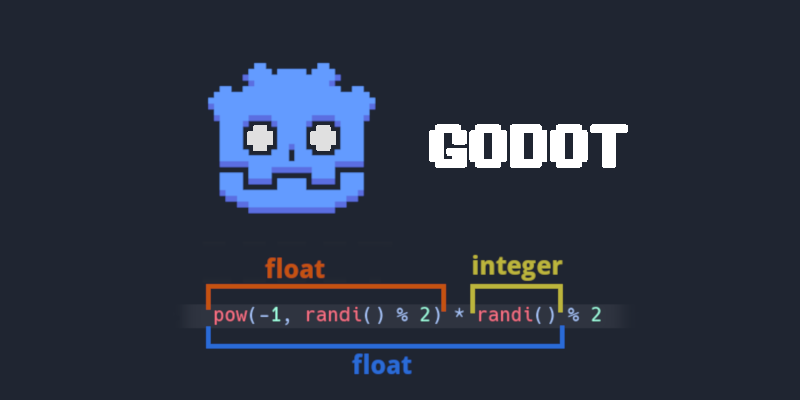Implicit type conversion in GDScript - When math gets in the way
2min read
Game Dev
Godot Engine
November 8, 2018

While coding a simple AI for my (italian) Godot video tutorial series, I needed vectors with these kind of random values:
Vector2(0, 1)Vector2(-1, 1)- …
Essentially I wanted to generate random values of 1, 0 or -1 and then use
them as Vector2 coordinates.
There are multiple (simple) ways of doing this, but the first that came to my mind was a slightly convoluted mathematical approach:

I'm lazy and I prefer using pen and paper instead of MathJax, yes.
that translated into GDScript code is somethink like:
pow(-1, randi() % 2) * randi() % 2
Even if mathematically correct, this expression does not work as expected.
When executing it, Godot complains about a bad float argument for
the modulo operator %.

Error screen
The problem is that pow() returns a float number and I was not taking this
into account (more on this later);

Types highlighted
this means that pow(-1, randi() % 2) * randi() is a multiplication of a float
and an integer.
In this case GDScript will implicitly convert the integer to float and thus the
result of the multiplication will be a float value, and here it is the problem:
this float value will be used as operand for the modulo operator and this is
not a valid operation.
I did not see this error at first because I was thinking in mathematical terms
and (-1)^n, for n positive natural number, is always an integer number.
Fixing the expression
# fixed
pow(-1, randi() % 2) * (randi() % 2)
# old
pow(-1, randi() % 2) * randi() % 2
Just use the parenthesis to give precedence to the ending randi() % 2 and the problem
is solved.
It’s not a super interesting read, but I think that it’s always good to remember that the math that we use in code development is really different from the math that we use in other contexts.